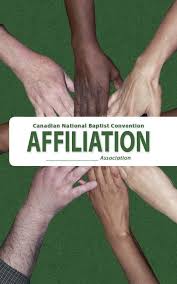To help with starting my assessment piece I thought it might be valuable to summarize module WBS300. I started to brainstorm what themes and tools have emerged in the course so far and write a bit about what I have gained from each part.
Professional Communications Technology
Web 2.0 technologies- tools to help our professional communication
- Blogging
- You Tube
- Flicker
- Wiki
Here I was introduced to a number of new tools that has expanded my knowledge of Web 2.0 technologies. I learned how to blog, something I had never done before as a useful way to share thoughts and ideas. You Tube was a tool I was familiar with using for showreels and it is a great way of sharing visual auditory information. Flicker was another new tool for photo sharing that I have starting accessing. After uploading my professional images I have used it a couple of times in applying for jobs by adding the link to my email cover letter. I feel using YouTube and Flicker is a great way of instantly showing an employer your skills. I was also introduced to LinkedIn by Stacy Wilson as a networking tool for other professionals. I find I like using this more so than facebook as it seems much more professional. This part of the course also influenced me to set up my own professional facebook account, which I am very happy I did. I now feel comfortable in accepting my agents, past teachers and employers on my professional profile knowing it is separate from my personal information.
An important aspect raised in this part of the course was that personal professional management is key in having a successful career. Self management of our careers and the way in which we act on the World Wide Web can have a profound influence in the directions our careers may go. I have found the impact the web can have on people’s lives whether through remixing (see my blog "Remix thoughts in response to Paula's blog") or through social networks (see my blog "Social Networks in the press") can change people’s lives.
Reflective Practices
- Being a reflective practitioner
- Journal Writing
- Theories from other thinkers
This part of the course introduced me to thinking about my professional practice in a critical way looking at why some things happen and to learn from these experiences. I have looked outwards at what other thinkers have said and tried and tested these ideas in my practice. My reflective journal has played an important part in not only keeping a log of what I have been up to but a way of recording thoughts and feelings at that time. I realize that before I started this many things have happened that I would normally brush away and forget about but I have the chance to look back over a particular day and think about what I can learn. It is interesting to look back and question why I felt like that and what I would change if I were to be in that situation next time. I found that I could relate to some of the theories in my practice such as Howard Gardner’s (1983) multiple intelligences theory and Donald Schon’s thinking in and on action. From David Kolb’s learning cycle I found myself to be a diverger (likes to observe before doing) and created my own cycle for my dance practice. I struggled with this theory in that in different circumstances I can enter Kolb’s cycle at different points and it can be dependent on the situation I am in. I experimented with the theory however, trying to come in at say active experimentation and trying the move out but I found reflective observation to be of most value to me.
In an online test I found my learning style and to no surprise discovered I am a kineasthetic learner. This clarified what I knew before but helped me to identify my weaknesses and strengths and ways in which I can improve. For example, I find it hard to sit still for long periods of time therefore if I take frequent breaks or workout before I start work I will perform much better.
The Networked Professional
Here I came across some new theories that I researched further and related them to my current professional practice:
- Cooperation
- Affiliation
- Social Constructionism
- Connectivism
- Communities of Practice
I found this part of the course the most informative and relevant to where I currently am in my career. Here we looked at our current networks and drew a map of what they might look like. In the campus session the idea of a tube map and nodes came about as ways to think of our networks. You can jump off at anytime have a change in route and connect with new nodes to make a larger network. Initially I felt I had quite a large network but when I looked closely I realized some of them I had not been in contact with for so long.
Ivan Misner pointed out “it is how well you know them (contacts) that really counts" (Ivan Misner, June 2010), which made me get back in contact with people I hadn’t spoke to in a while. Wha is the point in having over 1,000 friends on Facebook when you only talk to 10 of them on a regular basis?
Affiliation has been proven to be an important aspect of networking through the current contract I am in. I have seen someone who has not affiliated with the group and therefore has dramatically reduced her chances of improving her network and being given information from other girls.
I have had a different outlook to the way in which I now conduct myself. For example I have really realized the importance of making new contacts and keeping in touch. I have reconnected with people I have not been in contact with for a while to keep my current networks active. Staying active in communities of practice is how you get the most out of it. By being pro-active you can learn so much more. This is important for the rest of this course. The only way I will get the most out of it is by actively participating in blogging thoughts and sharing ideas.




